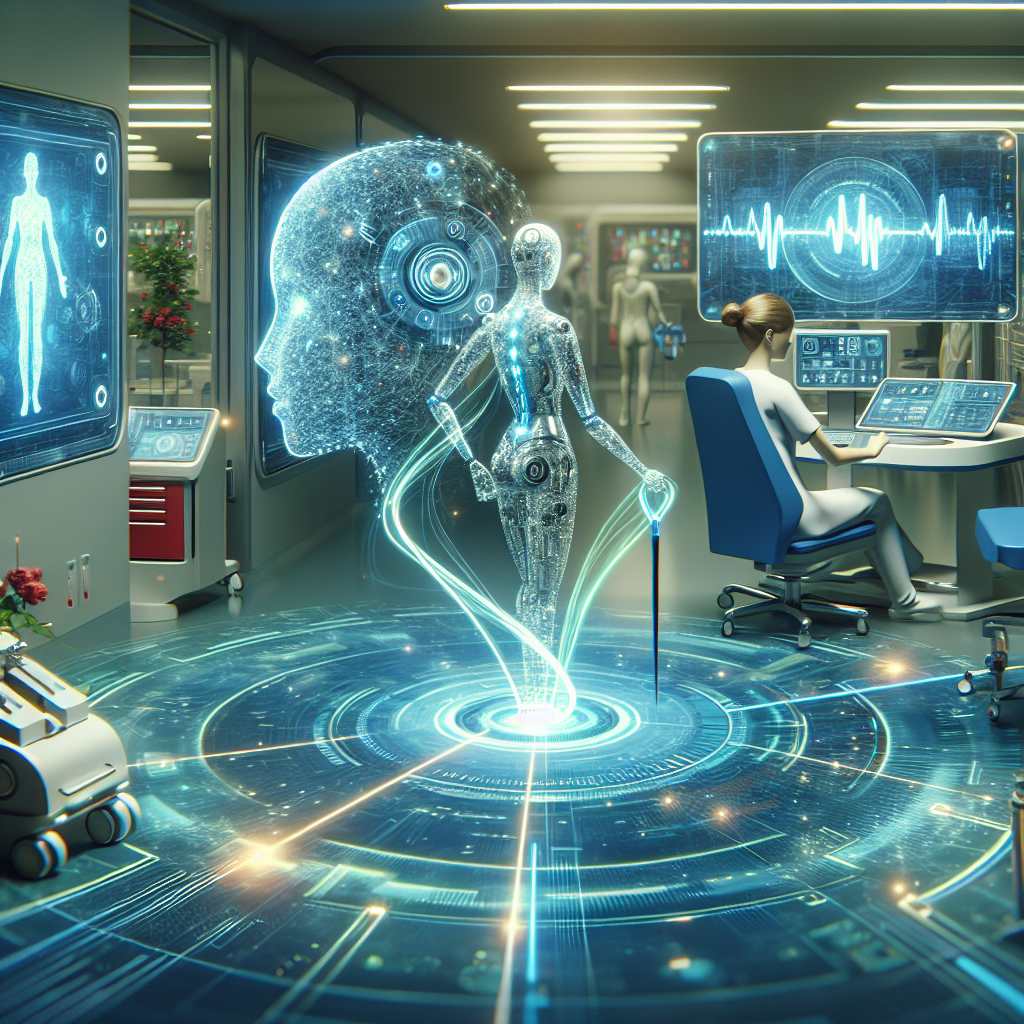Artificial Intelligence (AI) has made significant advancements in various industries, including healthcare. One area where AI is revolutionizing the healthcare industry is in Health Information Exchange (HIE). HIE refers to the electronic sharing of healthcare information among different healthcare organizations and providers. AI technologies are being used to improve the efficiency, accuracy, and security of HIE, ultimately leading to better patient care and outcomes.
AI in HIE is being used in various ways, such as:
1. Data Integration and Aggregation: AI algorithms can help in integrating and aggregating healthcare data from different sources, such as electronic health records (EHRs), medical imaging systems, wearable devices, and more. This allows healthcare providers to have a comprehensive view of a patient’s health history, leading to better diagnosis and treatment decisions.
2. Data Analysis and Insights: AI can analyze large volumes of healthcare data quickly and accurately to identify trends, patterns, and insights that may not be apparent to human analysts. This can help healthcare providers in making more informed decisions, predicting health outcomes, and improving patient care.
3. Predictive Analytics: AI can use predictive analytics to forecast patient outcomes, identify high-risk patients, and suggest preventive measures. This can help in reducing hospital readmissions, improving patient satisfaction, and lowering healthcare costs.
4. Natural Language Processing (NLP): NLP is a branch of AI that enables computers to understand, interpret, and generate human language. In HIE, NLP can be used to extract valuable information from unstructured data, such as clinical notes, radiology reports, and patient records. This can help in improving data accuracy and interoperability between different healthcare systems.
5. Security and Privacy: AI technologies, such as machine learning and deep learning, can enhance the security and privacy of healthcare data exchanged through HIE. AI algorithms can detect and prevent security breaches, unauthorized access, and data leaks, ensuring that patient information remains confidential and secure.
Overall, AI in HIE has the potential to transform the way healthcare information is shared, managed, and utilized. By leveraging AI technologies, healthcare organizations can improve the quality of care, streamline workflows, and enhance patient outcomes.
FAQs:
Q: What are the benefits of using AI in Health Information Exchange?
A: The benefits of using AI in HIE include improved data integration and aggregation, enhanced data analysis and insights, predictive analytics for better patient outcomes, NLP for extracting valuable information from unstructured data, and enhanced security and privacy of healthcare data.
Q: How can AI help in improving patient care through HIE?
A: AI can help in improving patient care through HIE by providing healthcare providers with a comprehensive view of a patient’s health history, identifying high-risk patients, predicting health outcomes, suggesting preventive measures, and enhancing data accuracy and interoperability between different healthcare systems.
Q: Are there any challenges in implementing AI in HIE?
A: Some challenges in implementing AI in HIE include data privacy and security concerns, interoperability issues between different healthcare systems, regulatory compliance, data quality and accuracy, and resistance to change from healthcare providers.
Q: What are some examples of AI technologies used in HIE?
A: Some examples of AI technologies used in HIE include data integration and aggregation algorithms, predictive analytics models, NLP for extracting insights from unstructured data, machine learning and deep learning for enhancing data security and privacy.
In conclusion, AI has the potential to revolutionize Health Information Exchange by improving data integration, analysis, security, and privacy. By leveraging AI technologies, healthcare organizations can enhance patient care, streamline workflows, and ultimately improve patient outcomes. As AI continues to advance, its impact on HIE is expected to grow, leading to a more efficient, effective, and patient-centric healthcare system.

